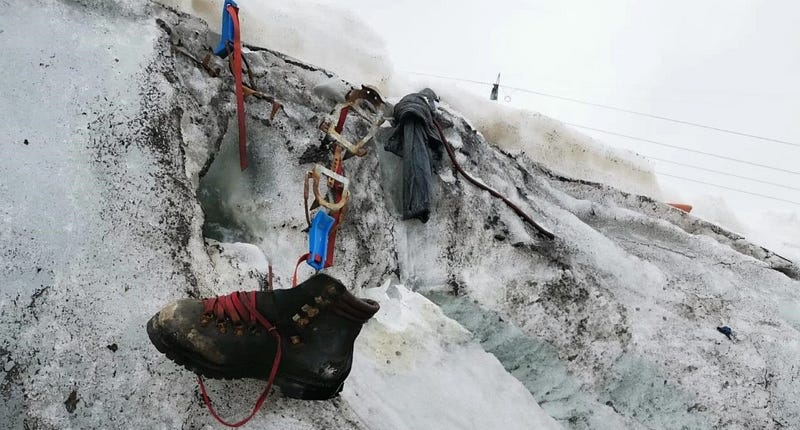
The body of a German mountain climber, who had been missing for 37 years after hiking near Switzerland’s iconic Matterhorn, has been found due to the melting glaciers revealing bodies and objects once considered lost.
On July 12, climbers exploring the Theodul Glacier in Zermatt made a significant discovery. They stumbled upon human remains and several pieces of equipment. Authorities in the Valais canton confirmed that through DNA analysis, they were able to identify the remains as those of a mountain climber who had disappeared in 1986. At that time, the German climber, aged 38, had been reported missing after failing to return from a hike.
Despite attempts to find the missing climber back in 1986, the searches proved fruitless. However, with advancements in forensic analysis, the remains found in the glacier could now be linked to the climber’s long-standing disappearance.
Authorities have not disclosed further details about the climber’s identity or the circumstances surrounding their death. Alongside the announcement, they released a photograph showing a single hiking boot with red laces protruding from the snow, along with other hiking equipment that belonged to the deceased individual.
This discovery reflects a trend driven by climate change, where melting glaciers are revealing long-lost individuals who vanished decades ago while engaging in alpine activities. Glaciologist Lindsey Nicholson from the University of Innsbruck explained that as glaciers recede, various materials, including bodies, previously buried by snow, are now resurfacing. Climate change has led to the rapid melting and retreat of glaciers across the European Alps, making these findings more frequent.
Last year, Swiss glaciers experienced their most severe melt rate in over a century, losing 6% of their remaining volume in 2022, almost double the previous record set in 2003. The melting was so extreme that ancient bare rock re-emerged, and bodies, as well as a lost plane from decades ago, were recovered from the Alps.
This alarming trend of glacier melting is expected to continue, particularly with “low snow years” exacerbating the problem. Precipitation that once fell as snow now falls as rain due to temperature changes, further contributing to glacier retreat.
Glaciers play a crucial role in supplying fresh water to nearly 2 billion people, and their disappearance will have cascading effects, including increased sea levels. Research suggests that even if ambitious climate targets are met, up to half of the world’s glaciers could vanish by the end of the century.
Nicholson emphasizes that some regions heavily depend on glacier mountains, and their vulnerability exceeds that of the Alps. The consequences of losing glaciers are far-reaching and deeply concerning. The discovery of the German climber serves as a poignant reminder of the urgent need to address climate change to safeguard our planet’s natural wonders and preserve the resources essential for life.